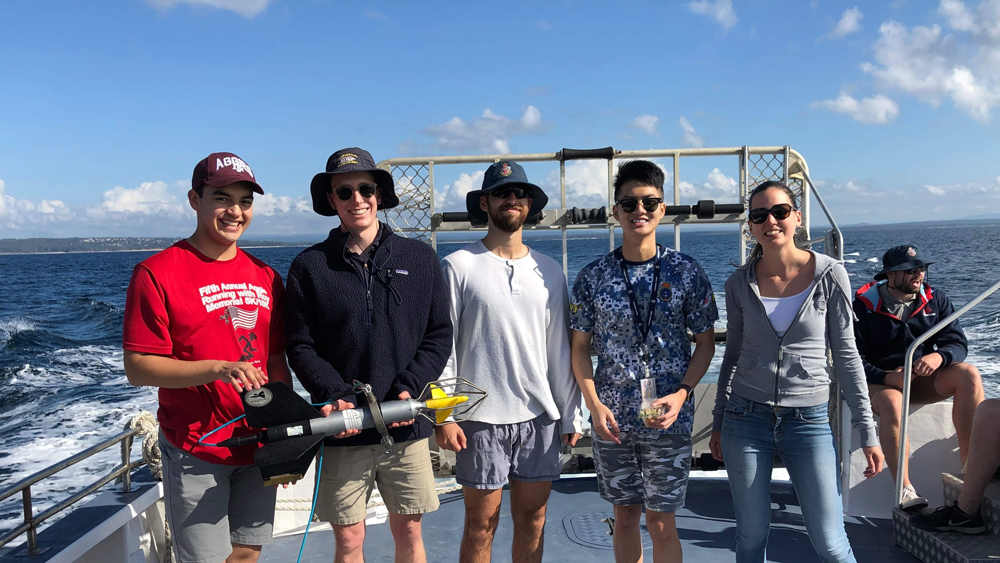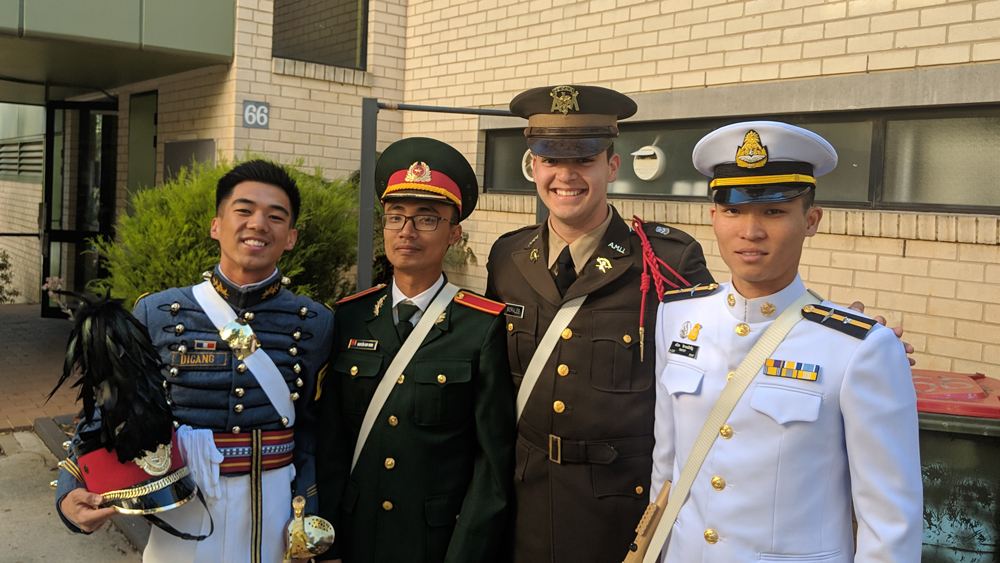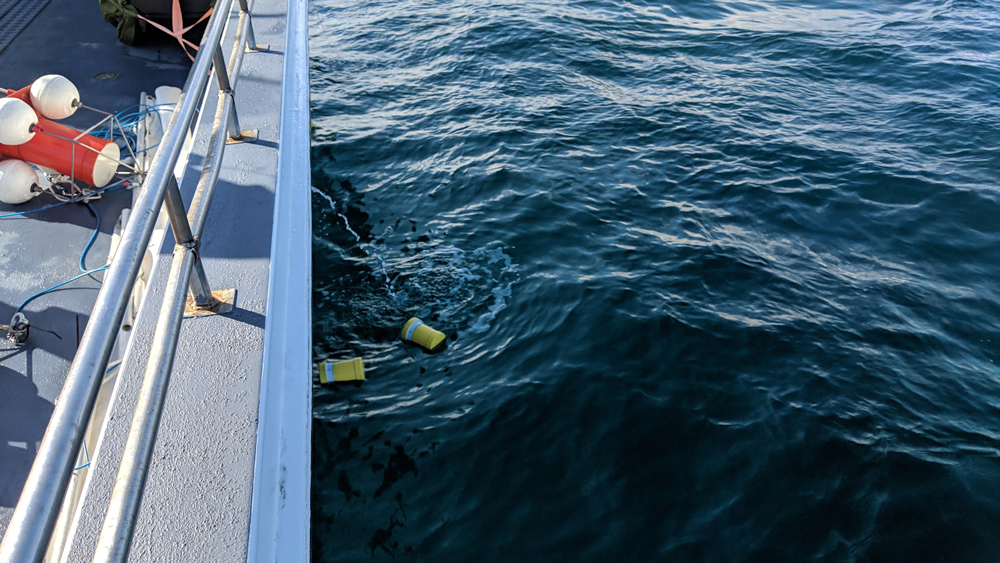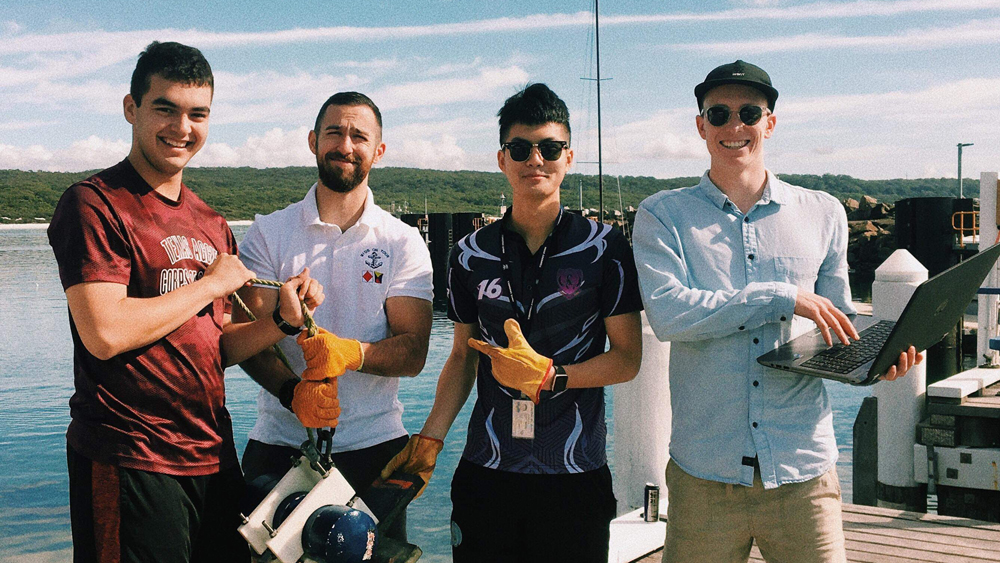
Nothing ventured, nothing gained. That’s the motto that Alejandro Morales, a junior in the Department of Ocean Engineering at Texas A&M University, has always lived by.
Following the moral of his own story, his most recent adventure had Morales embarking on a semester-long study abroad program to the Australian Defence Force Academy to broaden his horizons as a student, member of the Corps of Cadets and an engineer. And, unknowingly, to join the academy’s water polo team.
“It was definitely a fun experience and, since I've been back, I've been talking to sophomores and juniors in the Corps of Cadets and telling them it's a great opportunity,” said Morales. “If I could do it again, I probably would. I made really good friends, we still chat to this day, which is a bit tough because I think they’re 17 hours ahead of us. But it was really worth it and it definitely changed the way I am as a person.”

This global journey started as many seldom do – in a freshman math course.
While in class, Morales met a couple of Australian exchange students in cadet-like uniforms. For the remainder of their time in Texas, they found time to hang out with each other and become good friends.
“We kept in touch and, in the fall semester of my sophomore year, I got an email about a Corps of Cadets spring exchange,” said Morales. “I talked to them about it and asked ‘What do you think? Should I go?’ And my friend was like, ‘Dude, you're going have a blast.’ So, I sent in the application.”
After an interview with the commandant of the Corps of Cadets, Morales was on his way to Australia.
Morales added that, without that initial friendship, he probably never would have applied for the program. It was with the help from his faraway friends, too, that he was able to get the syllabi needed to piece together transfer credits and finalize his schedule. But, with help from around the world and within the department, he was able to step onto a nearly 20-hour flight to the academy.

Soon after he took a dive into water polo.
Having never played before and not being a strong swimmer, Morales was unexpectedly and suddenly recruited by his friend from the math class.
“I joined and spent about the first month drowning before finally learning how to properly float,” said Morales.
Recruited once more by the water polo team, he participated in a defence force tournament – playing against fellow military academy teams from Malaysia, Singapore and more. While their team did not place, the new venture was enriching all the same.
But things were not all fun and water polo games for Morales while he was abroad.
In addition to overcoming culture shock and language barriers, he had to balance his athletics with academia.

“I had, I think, 35 contact hours a week, said Morales. “So every week I had 35 hours in a lecture hall, a lab, a recitation and a study session. And, since it is a military academy, we also got to do the parades. Anzac Day was a really cool experience. I got to go on military drills. It was really interesting.”
Without an ocean engineering department to call his home, Morales was placed in civil engineering and oceanography while in Australia. But that didn’t stop him from testing the waters in labs and research. Partaking in things such as developing unmanned vehicle technology alongside ocean engineers in the navy and sailing through Jervis Bay on patrol boats to test water properties and how plastic travels in surface and sub-surface currents, he pushed onward in his pursuit of new horizons.
Despite the challenges he faced, Morales summoned his intrinsic motivation to power through the semester – leaving Australia with good grades, fond memories and lifelong friends.
“You have to trust in yourself,” said Morales. “Even if the going gets rough, just remember that you still got some left in you and you can still pull through.”